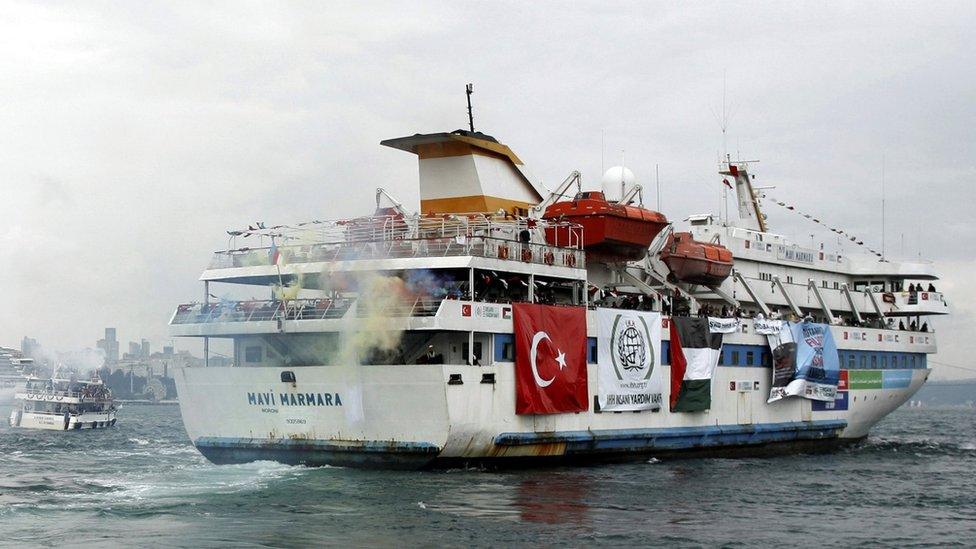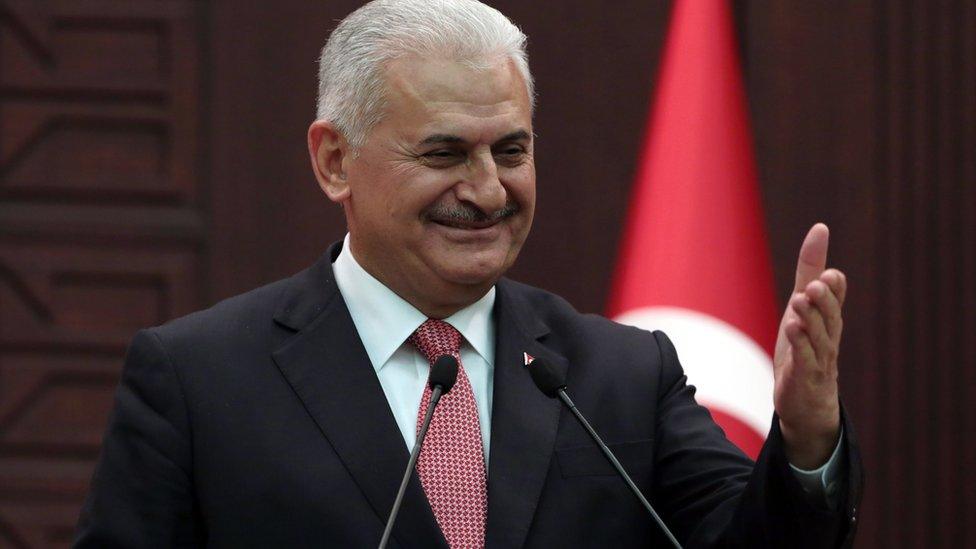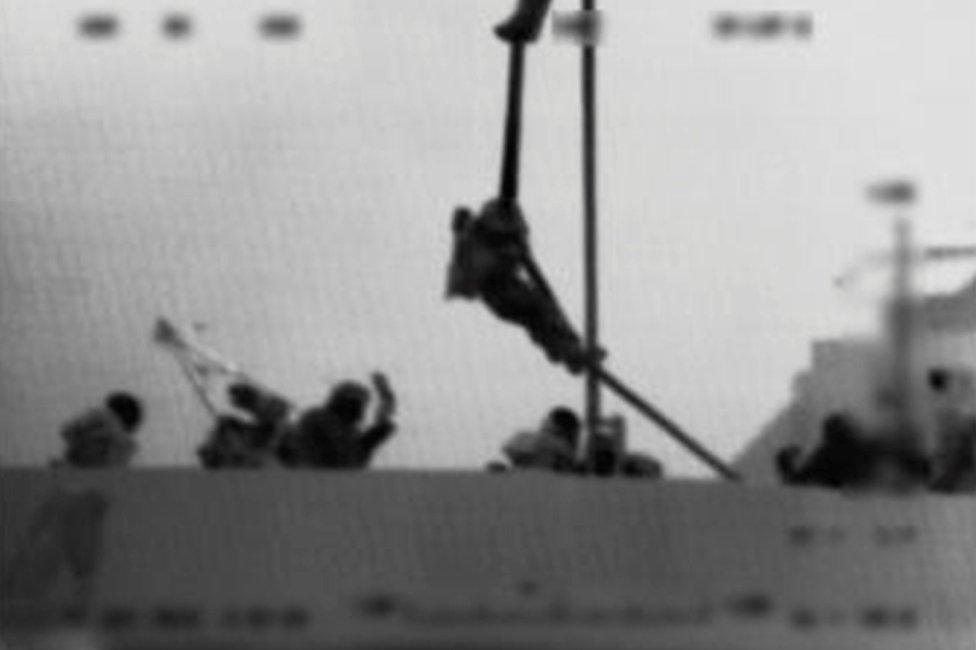Israel and Turkey end rift over Gaza flotilla killings
- Published

The Mavi Marmara was the lead ship in a six-vessel convoy heading for Gaza
Israel and Turkey have normalised relations, ending a six-year rift over the killing by Israeli troops of 10 Turkish activists on a Gaza-bound ship.
Turkish Prime Minister Binali Yildirim said a deal reached on Sunday would see Israel pay $20m (£15m) in compensation.
It will also allow Turkey to send aid to Gaza and carry out infrastructure projects in the Palestinian territory.
Israeli Prime Minister Benjamin Netanyahu said the agreement would help bring "stability" to the Middle East.
Turkey was once Israel's closest ally in the region, and the two countries share many strategic interests.
Gaza 'lifeline'
The Turkish and Israeli prime ministers announced the deal to restore diplomatic ties at simultaneous news conferences in Ankara and Rome.
Mr Yildirim said the two countries would appoint ambassadors "as soon as possible" after the agreement is signed on Tuesday.
A "lifeline to Palestinians" would be provided, he added, with the first ship loaded with 10,000 tonnes of aid due to leave for the Israeli port of Ashdod on Friday.

Analysis - By Jonathan Marcus, BBC defence and diplomatic correspondent
The reconciliation deal between Israel and Turkey will see a return to normal diplomatic relations, but ties are unlikely to have the warmth that they did in the past.
It is Turkey's growing diplomatic problems - strategic tensions with Russia; difficulties with Europe due to the growing authoritarianism of President Recep Tayyip Erdogan; and above all the failure of Turkey's Syria policy (which has also soured ties with Washington) - that have prompted this move.
Turkey gains a privileged role in Gaza's economic development and a lessening of its isolation in a deeply troubled region.
Israel sees an end to its practical difficulties with Turkey and gets assurances about future Hamas activity on Turkish soil.
There could also be important economic benefits to both countries in terms of the energy sector and tourism.

Turkey will also be allowed to invest in a series of development projects in Gaza, including residential buildings, a hospital, a power station and a desalination plant for drinking water.
In return, Turkey agreed to pass legislation protecting Israeli troops from legal claims over the Mavi Marmara incident, and to prevent any military action or fundraising by Hamas operatives based there.
"The total embargo imposed on Palestine and on the Gaza region in particular, is to being lifted to a great extent through Turkey's leadership," Mr Yildirim asserted.
But Mr Netanyahu said Israel's "defensive maritime blockade" of Gaza, which is dominated by the militant Islamist movement Hamas, would remain in place.

Prime Minister Binali Yildirim said Turkish aid for Gaza would arrive at an Israeli port on Friday
"This is a supreme security interest of ours. I was not willing to compromise it. This interest is essential to prevent the force build-up by Hamas and it remains as has been and is," he added.
Israel maintains its blockade of Gaza to try to prevent weapons or materials reaching Palestinian militants, with whom it fought a devastating war in 2014, while allowing humanitarian aid into the territory.
Palestinians say the policy is tantamount to collective punishment, and UN and aid officials have warned of deteriorating conditions in Gaza.
The Turkish-owned ship Mavi Marmara was part of a flotilla attempting to breach the blockade when it was intercepted by Israeli commandos on 31 May 2010.

The two countries had blamed each other for the violence on board the Mavi Marmara
Ten pro-Palestinian Turkish activists, one of them a dual American citizen, were killed and dozens wounded as clashes broke out after the commandos boarded the ship, descending on ropes from helicopters.
The two sides had blamed each other for the violence. The activists said the commandos started shooting as soon as they hit the deck. Israel said the commandos opened fire only after being attacked with clubs, knives and a gun which was taken from them.
A UN inquiry was unable to determine at exactly which point the commandos used live rounds.
Talks on normalising ties started after Mr Netanyahu telephoned Mr Erdogan, then Turkish prime minister, in 2013 to make it clear that the results of the Mavi Marmara incident were "unintentional" and to "express regret" over the loss of life.